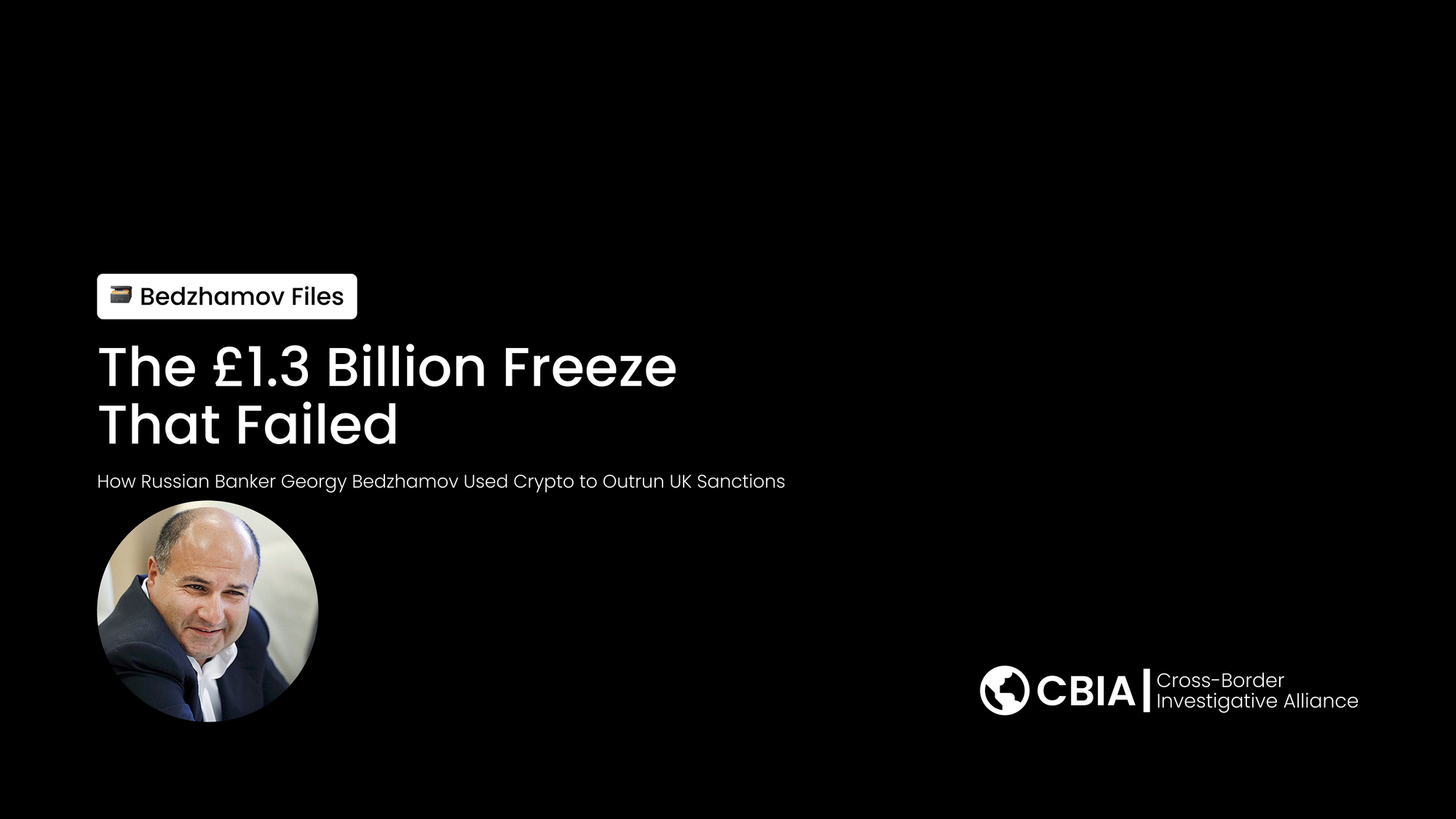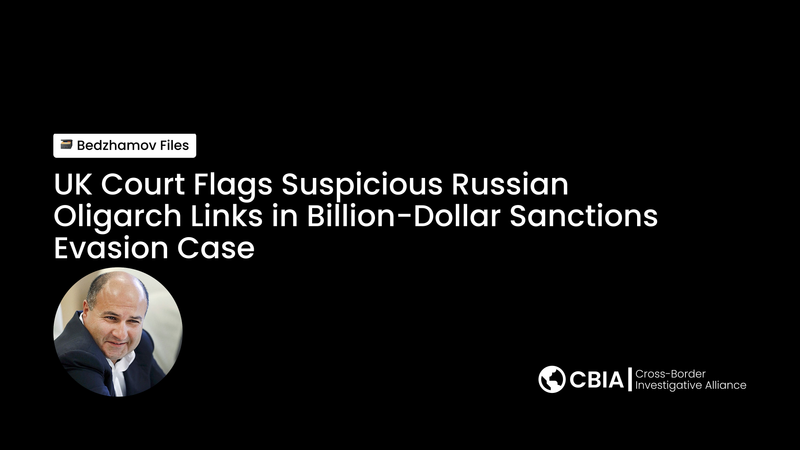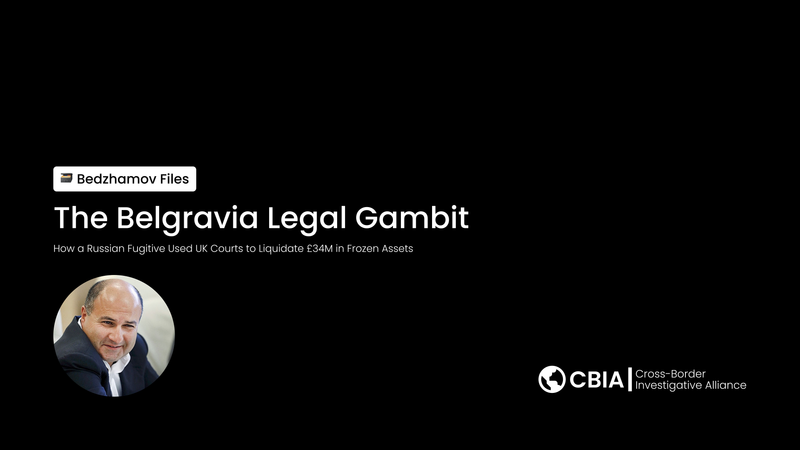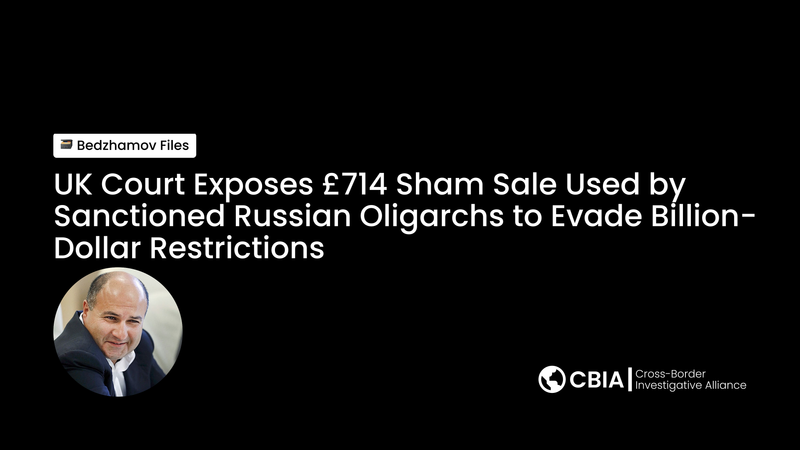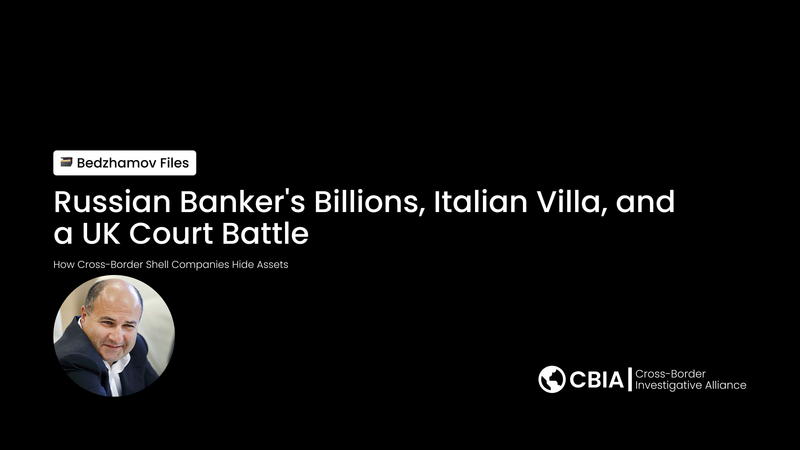The £1.3 Billion Freeze That Failed
How Russian Banker Georgy Bedzhamov Used Crypto to Outrun UK Sanctions
The Sanctions That Didn't Bite
In 2019, Georgy Bedzhamov, a Russian oligarch and former co-owner of Vneshprombank, stood at the center of a legal storm in the UK. Accused of orchestrating one of the largest banking frauds in Russian history, Bedzhamov allegedly helped siphon off more than £1.3 billion from the bank, leaving ordinary Russians with empty accounts and shattered trust.
The UK High Court responded with a sweeping freeze: Bedzhamov’s luxury London homes, Swiss bank accounts, Bombardier jet, and offshore assets were all locked under a comprehensive Worldwide Freezing Order (WFO). The message was unmistakable: justice would be served.
But just hours later, the cracks in that message began to show.
The 72-Hour Crypto Switch
According to a Chainalysis forensic blockchain study (2021), on April 2, 2019—just days after the freeze order—£4.2 million in Bitcoin was transferred from wallets tied to Bedzhamov’s offshore network to OKX, a cryptocurrency exchange based in Seychelles. In simple terms, a Bitcoin "wallet" is a digital tool that stores the cryptographic keys used to access and move Bitcoin. Each wallet is linked to a public address on the blockchain, making all transfers traceable—even if the identity behind the wallet remains hidden. The movement of funds to OKX suggests a deliberate effort to liquidate or conceal the assets before authorities could seize them.
The Loophole:
At that time, UK sanctions applied to traditional bank accounts, but not to cryptocurrency wallets especially "unhosted" wallets, which are not tied to verified identities. Seychelles, a tax haven with lax crypto laws, became the perfect escape route.
While Bedzhamov’s traditional accounts were frozen, his digital assets continued to move undetected through blockchain transactions.
The Unhosted Wallet Trick
Crypto wallets, unlike bank accounts, don’t require identification unless tied to regulated exchanges. Bedzhamov allegedly used unhosted wallets set up under shell companies, including Lantana Holdings Ltd, registered in Seychelles.
These wallets acted as anonymous digital vaults, allowing Bedzhamov to hide, move, and convert funds with little oversight. While the UK froze his known assets, millions were escaping silently into the blockchain.
A 2022 High Court ruling (Case FL-2021-000012) later noted:
"The respondent’s ability to fund ongoing expenses despite comprehensive asset restrictions raises serious questions about digital currency channels."
London's Role in the Bedzhamov Case
While the public spotlight focused on Bedzhamov’s alleged crimes, British enablers played a quiet but crucial role.
The Accountant:
A Mayfair-based accounting firm, named in court documents, helped set up Lantana Holdings Ltd, the Seychelles shell company used to register unhosted wallets. These accountants provided the infrastructure that allowed Bedzhamov to skirt enforcement.
The Blind Eye:
The UK’s Office of Financial Sanctions Implementation (OFSI) admitted in an internal review (2023) that, until recently, it had no tools to monitor or trace crypto transactions. Enforcement agencies were effectively blind to crypto movements for years.
The Turkey-Dubai Laundering Trail
A 2023 OCCRP investigation revealed that a London-licensed payment processor helped convert Bedzhamov’s crypto into cash via Turkish lira exchanges, eventually moving funds to Dubai. The process:
- Bitcoin from Seychelles wallets went to Turkish crypto platforms.
- It was exchanged for lira a currency subject to weaker scrutiny.
- Lira was sent to Dubai, where proxies accessed the money.
This three-jurisdiction method made tracing nearly impossible in real-time and allowed Bedzhamov to maintain his lifestyle despite the asset freeze.
The Aftermath: Freeze in Name Only
Despite the £1.3 billion order, 90% of the assets remain unrecovered, according to filings in Russian courts. The WFO was supposed to preserve wealth to compensate victims, but UK enforcement failures and crypto loopholes rendered it toothless.
A National Security Risk
This isn’t just about one man. A 2023 RUSI report estimates that over 500 sanctioned Russian individuals may have used similar crypto workarounds. With tools like mixers(services that obscure the origin of cryptocurrency by blending it with others), unhosted wallets(crypto wallets not linked to any regulated financial institution) , and DeFi platforms(decentralized finance applications that let users trade, lend, or borrow crypto without intermediaries), the UK’s sanctions system faces a serious credibility challenge.
Why It Matters to the UK Public
- Failed Justice: Taxpayer-funded legal systems couldn’t stop a fraudster from living large despite legal orders.
- Crypto Blind Spot: Until 2023, UK regulators had no effective crypto tracing tools.
- Global Embarrassment: London’s reputation as a financial center is undermined when sanctions are so easily bypassed.
This case is not just about fraud; it’s about how quickly financial crime is evolving and how slowly regulators are keeping up.
Summary: The Crypto Escape
In a landmark decision, a UK court froze £1.3 billion of Georgy Bedzhamov’s assets, legally restricting his access to the funds. However, despite this court order, approximately £4.2 million in Bitcoin was transferred to the OKX exchange registered in Seychelles placing the assets outside UK jurisdiction. Using a web of unhosted wallets and shell companies, Bedzhamov effectively obscured ownership and avoided detection. The cryptocurrency was then converted into cash in Turkey and moved to Dubai, turning digital assets into spendable wealth. As a result, Bedzhamov maintained his extravagant lifestyle flying on private jets, employing top legal teams, and residing in luxury penthouses demonstrating how the justice system was ultimately sidestepped.
References & Sources
- Chainalysis Case Study (2021):chainalysis.com
- UK Judiciary Case FL-2021-000012:judiciary.uk
- RUSI Crypto Laundering Report (2023):rusi.org
- OCCRP Report (2023) –Cyprus Confidential Leaks
- NCA&OFSIInternal Reviews (2022–2023)


